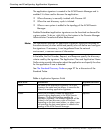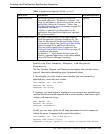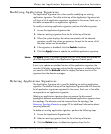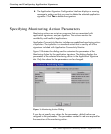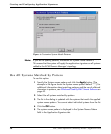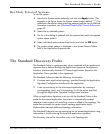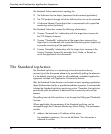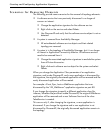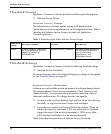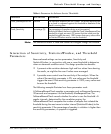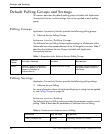
Creating and Configuring Application Signatures
28 EMC Smarts Application Connectivity Monitor Configuration Guide
The Standard Probe creates basic topology for:
• The Software Service object (represents the discovered application).
• The TCP endpoint through which the Software Service can be accessed.
• A Software Element Check object that is instrumented with a specified
monitoring action (tcpAction).
The Standard Probe also creates the following relationships:
• Creates “Accessed Via” relationship with the target class instance for
the TCP Endpoint Instance.
• Creates “CheckedBy” relationship of the target class instance of an
object that is instrumented with a specified monitoring action (tcpAction)
to provide monitoring of the application.
• Creates “HostedBy” relationship with the target class instance of the
Unitary Computer System (for example, Host, Node, or Router) on
which the application was discovered.
The Standard tcpAction
The Standard tcpAction is a monitoring action that monitors the tcp
connectivity of the discovered elements by periodically polling the elements.
It is the default monitoring action for all predefined, autodetect application
signatures included with Application Connectivity Monitor.
After the Standard Probe discovers and creates a basic topology application
object (SoftwareService) for a specified autodetect signature, it automatically
initiates the Standard tcpAction monitoring action. Thereafter, the tcpAction
periodically polls the element to determine the connectivity status of that
element.
The polling interval of the tcpAction is set through the Polling and Thresholds
Console.
Where applicable, the parameters of the Standard tcpAction can be
changed through the Customize Monitoring Action Dialog. The parameters
include:
• address: the hostname or IP address of the server.
For autodetect signatures, this can be left blank. The information is
collected at runtime.



